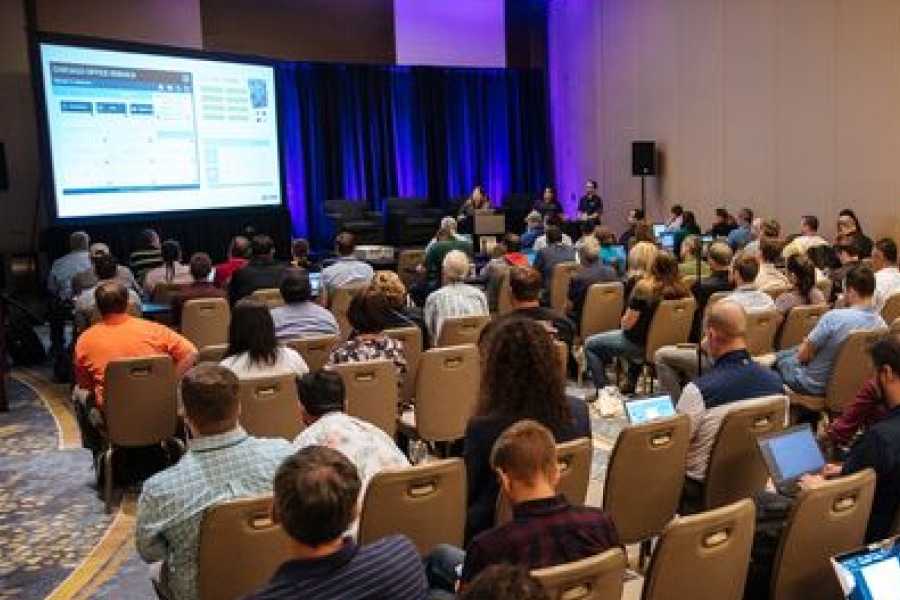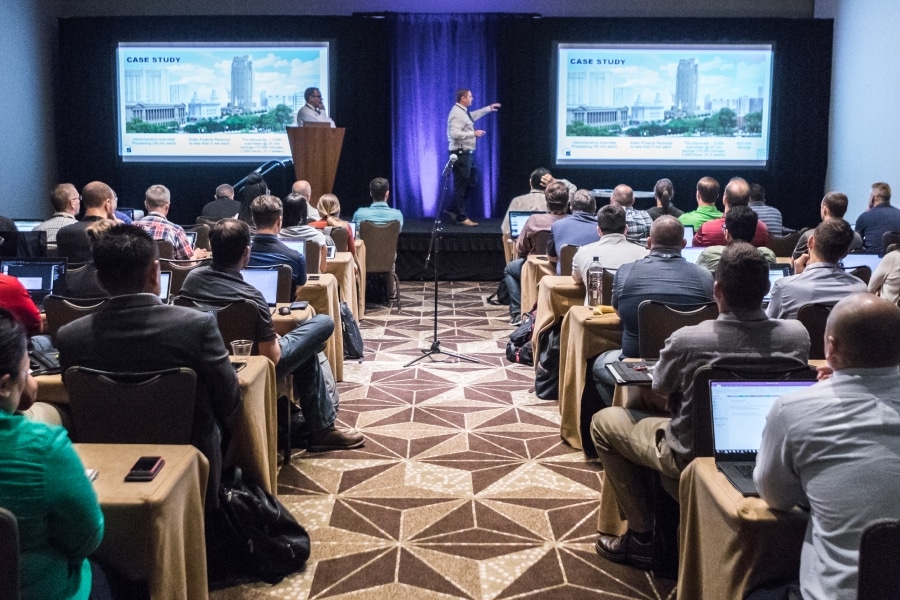Illustration by Rae Scarfó
Pay application review is a common workflow between subcontractors, general contractors and owners. As projects move along, each of these entities need to get paid based on work completed and installed for each pay period.
Normally, this workflow might take place via email, where communication is fragmented, with different parties transacting off an unorganized barrage of forms and spreadsheets, each designed so that the process is accurate and orderly.
This is especially the case with the schedule of values that outlines cost amounts between contractor and subcontractor. This detailed, multi-page schedule apportions the original contract sum and all change orders, among all cost code divisions or portions of the work. Moreover, the schedule of values is based on the approved budget or type of contract; it lists every work item on a project, as well as each item’s value or cost. Ultimately, the comprehensive work list represents the entire construction project and its contract price, from start to finish.
What often results is a time-consuming process, which inevitably leads to extra time spent ensuring the accuracy of the application review process, according to Jennifer Younes, a Bluebeam product marketing specialist who spent a significant chunk of her early career in the field with Barton Malow Company.
During her time with Barton Malow, Younes said her team ultimately discovered that by moving the pay application review process to Bluebeam Revu and Studio Sessions—which allows users to collaborate on and annotate documents in a cloud environment—they were able to streamline the workflow in a way that was more efficient.
“The reason Studio makes sense and is efficient is because it consolidates the communication of all parties into one centralized location,” Younes said. “Previously, you’d have to exchange numerous emails per subcontractor, per pay app, on a monthly basis. Each email would contain multiple attachments and we’d have to manually consolidate markups from each reply for sometimes up to 30 or 40 subcontractors. With Studio Sessions, we were able to collaborate in one location, have access to the latest documents and markups and would minimize the need for emails and manual consolidation of comments.”
Here are five benefits Younes said other contractors should consider as they seek new ways to incorporate Studio Sessions into their pay application review process.
Centralized communication
Email is faster than traditional mail, but it’s not necessarily more organized. When subcontractor payment applications are passed on to the project’s general contractor, they generally are reviewed by the firm’s accountants, project engineers, superintendents and project managers—and sometimes corrections are needed before the final application is approved.
But when there are 30 or 40 subcontractors on a project, which is often the case with large buildings, that process becomes time-intensive and error-prone, making it difficult to keep organized.
Studio Sessions can alleviate these issues by acting as a centralized communication hub for the entire workflow each pay period. Subcontractors can submit their pay applications, contractors can make notes or ask questions and, if necessary, communicate directly through a Studio Session while applications are reviewed.
Notifications and alerts
Getting pay applications processed and approved quickly is a shared responsibility. Using the Alert tool inside Studio Sessions can help keep pay applications as well as other documents submitted on time and ensure all items are reviewed in a timely manner.
Younes said thanks to alerts within Studio Sessions, subcontractors and team members are instantly notified on comments that require their attention—they can log in anytime to see the latest information and make the necessary adjustments.
“We would use the alert notifications within Studio to notify team members to review and add comments to specific line items,” Younes said, reflecting on the pay application review process her team at Barton Malow followed. “After review, we’d notify the subcontractor our review was complete, they would re-enter the Session, make the noted changes and re-upload the final document with corrections. We would then jump back into Studio, verify the corrections were made and approve the pay app with customized Revu Stamps and Signatures. Studio helped that process immensely.”
Cost savings
While facilitating the pay application review process over email with attached documents may be initially intuitive, the time spent going back and forth over email, double- and triple-checking for corrections and communicating in a fragmented, disorganized way will eventually add up.
After all, time is money in construction, and the less time workers spend searching a crowded email inbox to stay on schedule with a pay application review, the more time they can spend doing high-impact work in the office or in the field.
Younes said that, in her experience, the time saved moving the pay application review process to Studio Sessions was significant. It saved her and her team from having to spend excess time doing administrative work and allowed them more time to focus on moving their projects forward.
Streamline workflows
Pay applications are only a small part of the document management capabilities of Studio Sessions. Change orders, drawing issuances, submittals, scopes of work, schedules and just about any other document used regularly can be collaborated on as a PDF in Studio Sessions.
What’s more, Studio Sessions are flexible and customizable to a project’s needs. Users can identify project workflows to streamline and standardize collaborative reviews by using Sessions.
Finally, since everything is PDF, signatures and approvals can happen digitally and instantly.
Increase efficiency and standardization
Revu makes it easy for project teams and companies to create custom Markups and stamps with Tool Sets that can be shared across the project team and organization. Shared custom Tool Sets save time, increase efficiency and ensure consistency across document reviews for any workflow.
Instead of each reviewer using valuable time to make their own markups and stamps, project teams can create project-specific markups and share with the whole project team to ensure all markups are consistent and save time.
By using Studio Sessions for pay application review, all project stakeholders can benefit from a faster, more organized and user-friendly process.











